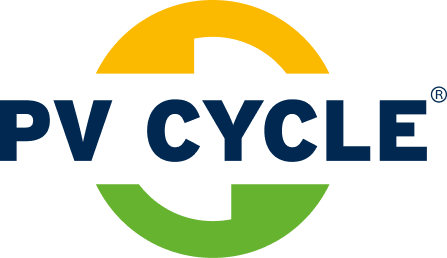CONSORZIO ERP ITALIA, COBAT RAEE AND PV CYCLE: POLITECNICO DI MILANO CONFIRMS THAT THE TRUST IS THE MOST ROBUST MODEL FOR RECYCLING PHOTOVOLTAIC MODULES
Rome, October 9, 2025 – The Collective Systems Consorzio ERP Italia, Cobat RAEE, and PV CYCLE ITALIA, which together represent approximately 90% of producers operating in the national photovoltaic sector, commissioned an independent study from the Politecnico di Milano – Energy & Strategy Group to assess and validate the sustainability of the Trust financing model applied to the end-of-life management of photovoltaic modules.
The analysis, conducted by an independent academic institution, demonstrated that the Trust, based on an average provision of €2.6 per panel, can ensure economic balance until 2060 even under highly conservative scenarios. In the case of management costs of €4 per panel, the system generates a surplus of approximately €790 million with coverage for over forty years, while in the base scenario, with costs of €2.6 per panel, the surplus reaches around €1 billion. Only in extremely costly scenarios, with costs up to €8 per panel, is a negative balance observed by 2060, still highlighting the model’s resilience and the possibility of adjusting the provision over time to maintain equilibrium.
The study emphasizes that the Trust prevents the risk of “orphan panels,” ensuring continuity of management even if producers exit the market, and distributes costs fairly across generations, thereby strengthening environmental and intergenerational responsibility. Compared to the generational system, which requires payment of costs at the time of need and is more suitable for mature and stable markets such as household appliances, the Trust proves more consistent with a young and dynamic sector like photovoltaics, which is rapidly growing and characterized by an increasing concentration of utility-scale installations.
Alberto Canni Ferrari, Special Attorney of Consorzio ERP Italia, commented: “The Trust represents a concrete and rigorous application of the extended producer responsibility principle. Requiring producers to cover end-of-life costs today ensures operational continuity and resource certainty for the future, preventing the burden from falling on future generations. This is the key difference compared to the generational system, which does not provide adequate stability guarantees for products with long lifecycles, especially in a rapidly evolving sector like photovoltaics. The Politecnico di Milano study confirms that the Trust is the most suitable tool to ensure a solid, transparent, and sustainable future for the sector.”
Michele Zilla, President of Cobat RAEE, emphasized: “The Trust is a solid and transparent instrument that ensures traceability and the availability of resources necessary for end-of-life management of photovoltaic modules. It guarantees continuity, even for orphan panels, and represents a cornerstone for the long-term sustainability of the sector. This model transforms an environmental obligation into a lever of trust and shared responsibility. Knowing that every producer contributes today to building the economic foundation for proper treatment of tomorrow’s panels strengthens the credibility of the entire sector while protecting the environmental and industrial value of the energy transition.”
Rosa Narcisi, Country Manager of PV CYCLE ITALIA CONSORZIO, added: “Photovoltaics is a young and fast-growing sector, and for this reason, it requires stable and credible instruments. The Trust allows for planning and guaranteeing proper recycling of end-of-life modules, avoiding imbalances and reinforcing trust among all supply chain actors. The Politecnico study confirms that the model is solid and sustainable, but it is important to continue strengthening it with a few simple and concrete measures: ensuring that Collective Systems correctly determine the environmental contribution in line with actual costs, verifying the effective transfer of resources to the Trusts, and guaranteeing that funds are invested prudently and with capital preservation in mind. In this way, the Trust can further consolidate as a guarantee instrument protecting producers, operators, and future generations.”
The ongoing parliamentary discussion on the revision of the RAEE Legislative Decree – which aims, among other objectives, to “Reorganize the national regulation concerning end-of-life photovoltaic panels from households and other users in line with the RAEE Directive, including the elimination of the retroactive effect of extended producer responsibility provided by the RAEE Directive” – expected by the end of the year, will be crucial to strengthen the regulatory framework and ensure operational continuity, defining a clear structure for contribution distribution and risk allocation. With this joint initiative, Consorzio ERP Italia, Cobat RAEE, and PV CYCLE ITALIA reaffirm their role as guarantors of the supply chain and their commitment to operate with transparency and professionalism, providing the market and institutions with a scientific and authoritative assessment confirming that the Trust is the most suitable model to guarantee stability, sustainability, and credibility for recycling photovoltaic modules in Italy.
The Trust model therefore represents a best practice for the sector, but like any system, it can be further improved. The promoting Consortia highlight three simple and concrete areas for improvement: ensuring that environmental contributions determined by Collective Systems are always aligned with actual treatment costs; guaranteeing traceability and the effective transfer of resources to the Trusts; and ensuring that funds are invested prudently and with capital preservation, safeguarding producers and future generations.
